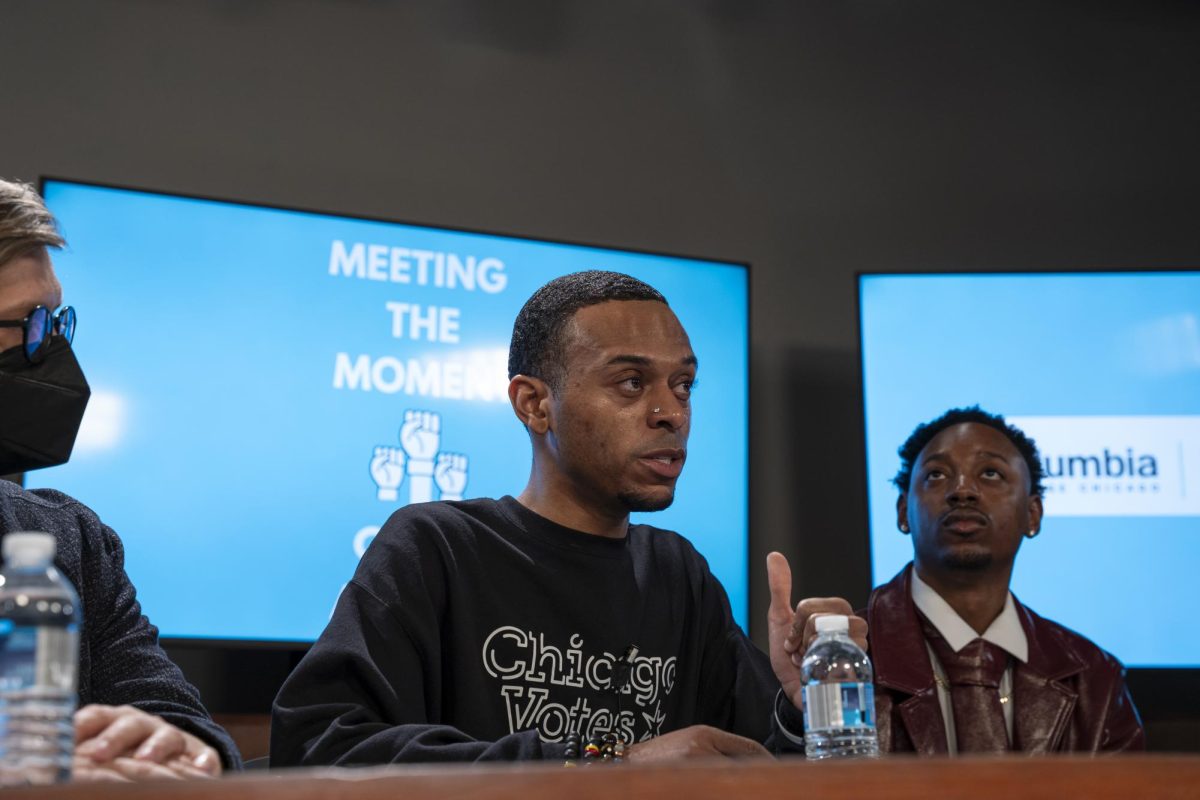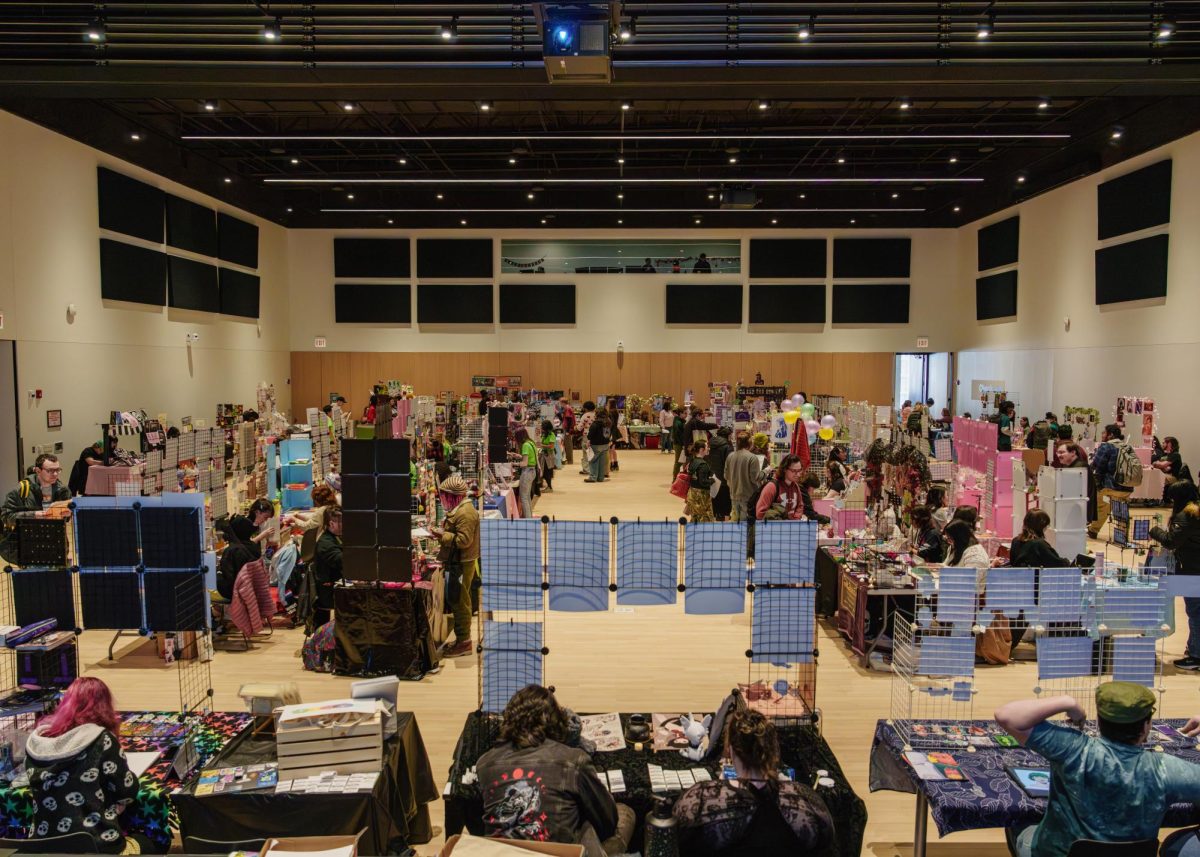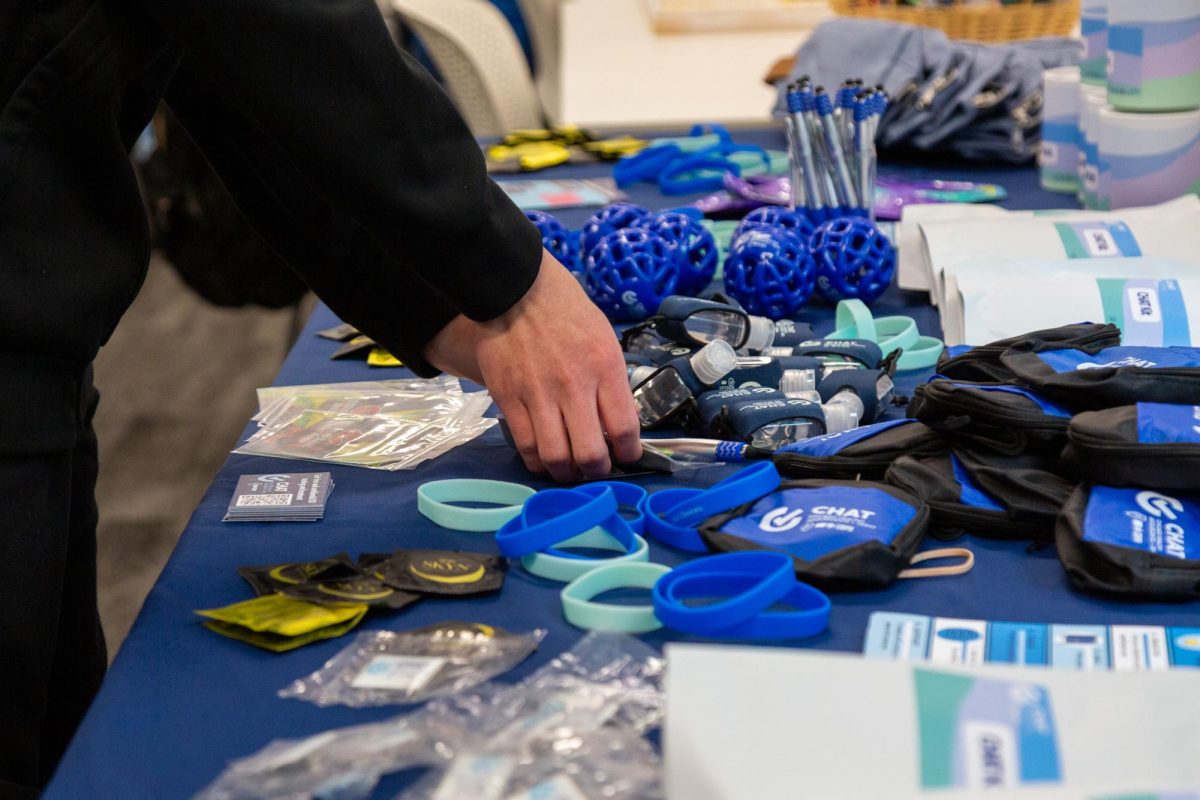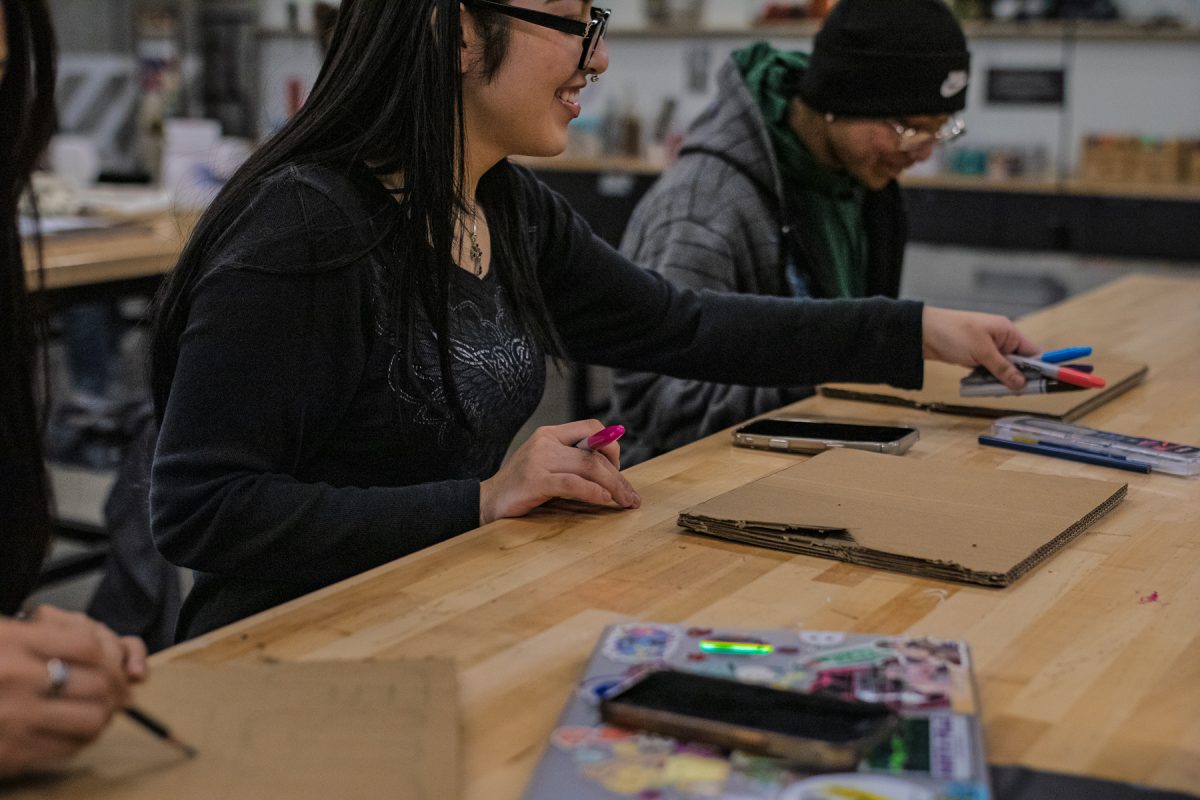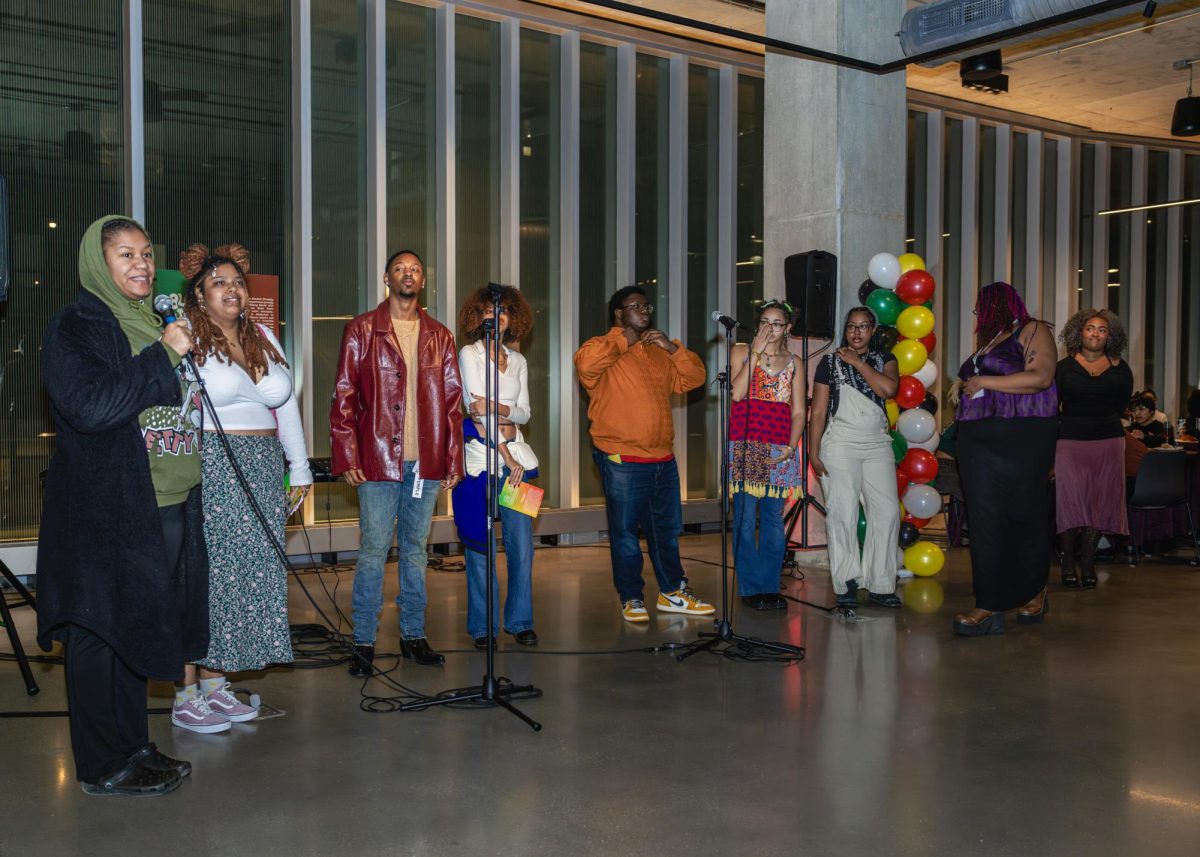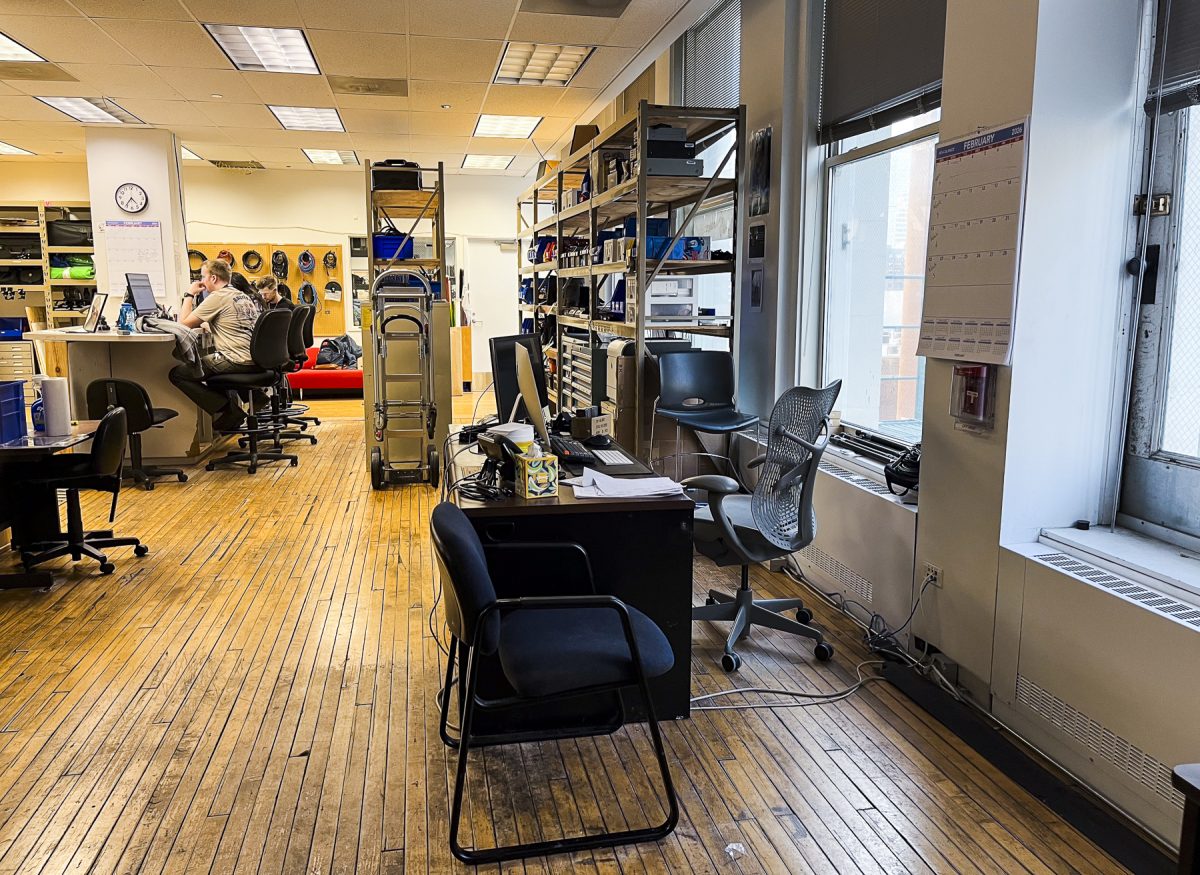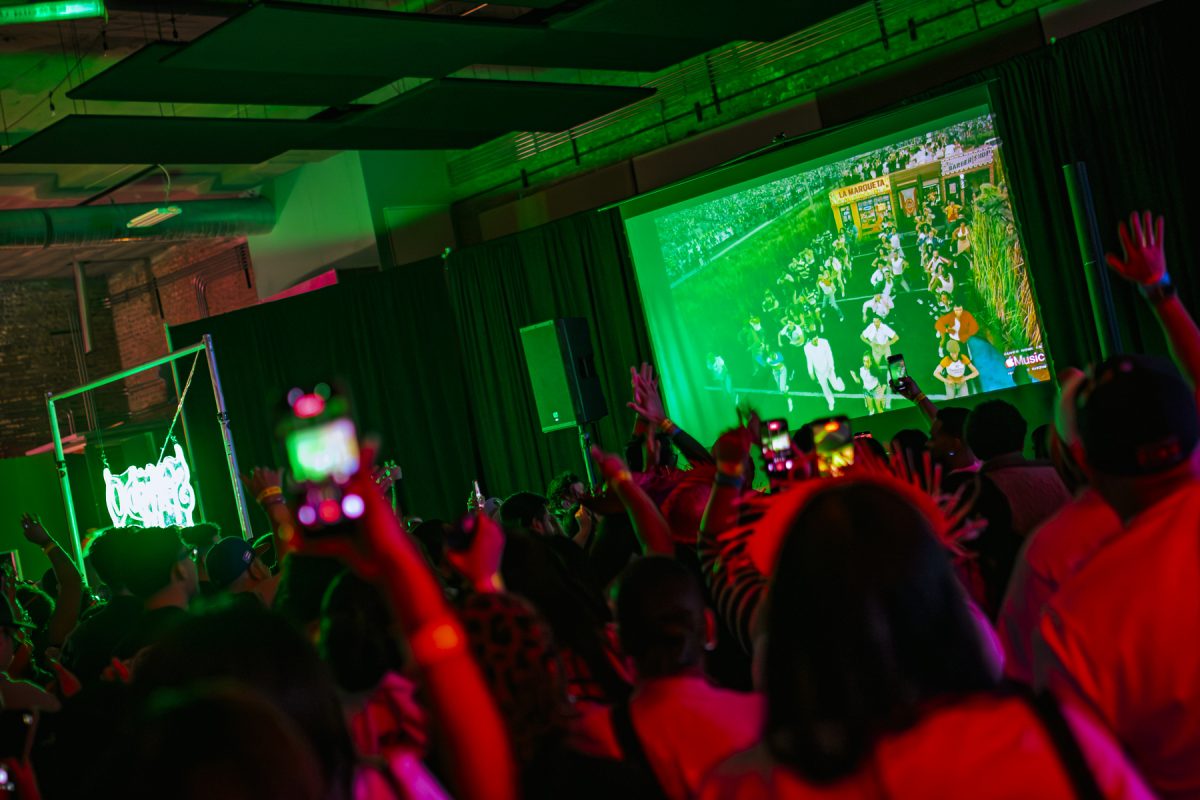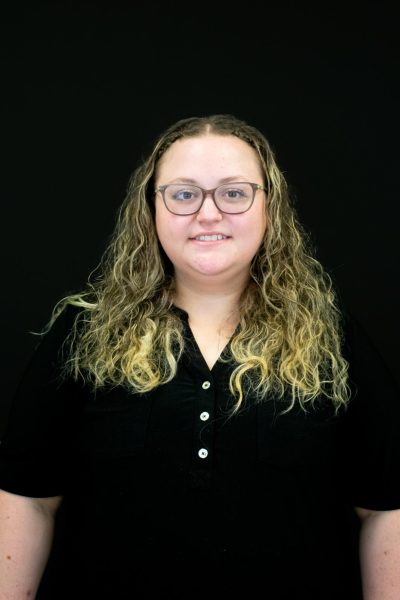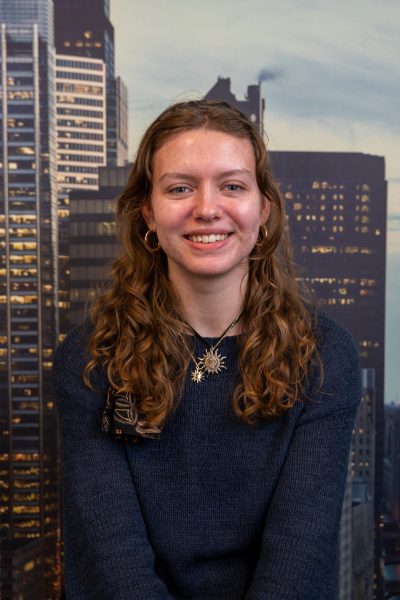Columbia Votes held an event featuring four hour-long panels on Wednesday, March 5, with the goal of shifting their focus from the fall semester’s theme of “civic joy” to their post-election push for “civic action,” according to founder and advisor Sharon Bloyd-Peshkin.
Bloyd-Peshkin, a professor in the School of Communication and Culture, said the organization’s switch in focus was the “genesis” of the event held in the Live TV Studio in the 33 E. Ida B. Wells building. It was also live-streamed.
“The spring was shifting from civic joy to civic action,” she said. “Now, it’s about making sure that our elected officials hear us and respond to us, and it’s about figuring out how to respond in multiple ways. Not only by communicating with elected officials, but ‘What can we do in a civic space to make sure that the things we care about happen?’”
The first panel focused on finding reliable sources of information. A second panel addressed effective activism and how to organize. In the afternoon, the third panel focused on staying safe at a protest, cyber security and managing stress, and the final panel addressed how to be a force for good.
Voter Registration Genius and senior comedy major Wyatt Menci, who moderated the first panel, said part of the civic action should be engaging in local government.
After an election is “where it comes down to getting active in your local government, because that’s where you’re going to see a lot of changes that affect your life,” Menci said.
Sophomore film and television major Tessa Miller, who attended the first panel, was encouraged by the call to harness your political fear and turn it into action.
“I agree with the idea of not letting fear overtake us, but it’s also important to know that things are scary and you’re allowed to be worried, but to use that fear to your advantage, in the form of activism, instead of being kind of paralyzed,” Miller said.
The first panel discussion, “Making Sense of the Moment and finding reliable sources of information,” featured School of Communication and Culture professors Jaafar Aksikas, Sean Andrews, Rob Watkins and Jackie Spinner.
After a 30-minute break, the “Effective Activism (including art activism) and how to organize” panel was led by Voter Registration Genius Haley Patton, and the panelists were Emilio Rodriguez, environmental justice organizer with the People’s Lobby; Josh Fleckner, head of communications for Jewish Voice for Peace Chicago; Asha Iman Veal, associate curator for the Museum of Contemporary Photography and Denise Poloyac, a board member of Indivisible Chicago Alliance.
The panels continued to draw students into the room. The “Staying Safe: know your rights, stay safe at a protest, cyber safety, managing stress” was hosted by Voter Registration Genius Jaylen Barlow, a junior journalism major, with panelists Mike Podgurski from the National Lawyers Guild Chicago chapter of the Mass Defense Committee; Tre King, multimedia content strategist and cultural organizer for Chicago Votes; Tiana Hill, co-director at the Center for Student Wellbeing and Josh Fleckner, who was also in the previous panel.
Podgurski valued collaborating with Columbia Votes as they share similar values to his work, and found it important to speak to the students about protesting safety.
“I think the youth and the younger generation will be the ones to take up the struggle for human rights, equality and liberation that has been ongoing for generations,” he said, “and the youth will be the ones to do it now.”
Podgurski said in the past year and a half, he’s noticed repression specifically from colleges against their students’ movements in solidarity with Palestine, including disciplinary hearings, calling the police and arrests.
“Those are issues that students face, however that is no reason for students to cease that type of activism,” he said. “I think it’s just understanding what are the potential consequences of engaging in that, and assessing your willingness to take those risks.”
Despite these obstacles, he urged students to not back down.
“And because there’s going to always be some force trying to stop you, it’s important to maintain a level of courage, and because there is a very long tradition of activism on campus,” he said.
The event concluded with the fourth panel, “Being a Force for Good: protecting the vulnerable, creating communities of care,” which was hosted by Voter Registration Genius James Wieners, a senior journalism major, and panelists Betty Alzamora, board member of Indivisible Chicago Alliance; Katherine O’Brien from Logan Square Mutual Aid, Asha Ransby-Sporn, a community organizer and writer and Matthew Eiler-Rillie, coordinator of education and community development for the Office of Student Diversity and Inclusion.
Bloyd-Peshkin said each of these panels contributed to the overarching theme of empowering students to advocate for what they feel is important, despite any pushback they may receive.
“I’m hoping that it helps move people from fear, despair and concern to agency and action,” she said. “Where they realize that they can actually play an important role in our community, both inside the campus community and externally, because they’ll be informed and they’ll know that they have colleagues and organizations that also share their desire to make this a safer and better place for everybody.”
Copy edited by Trinity Balboa

